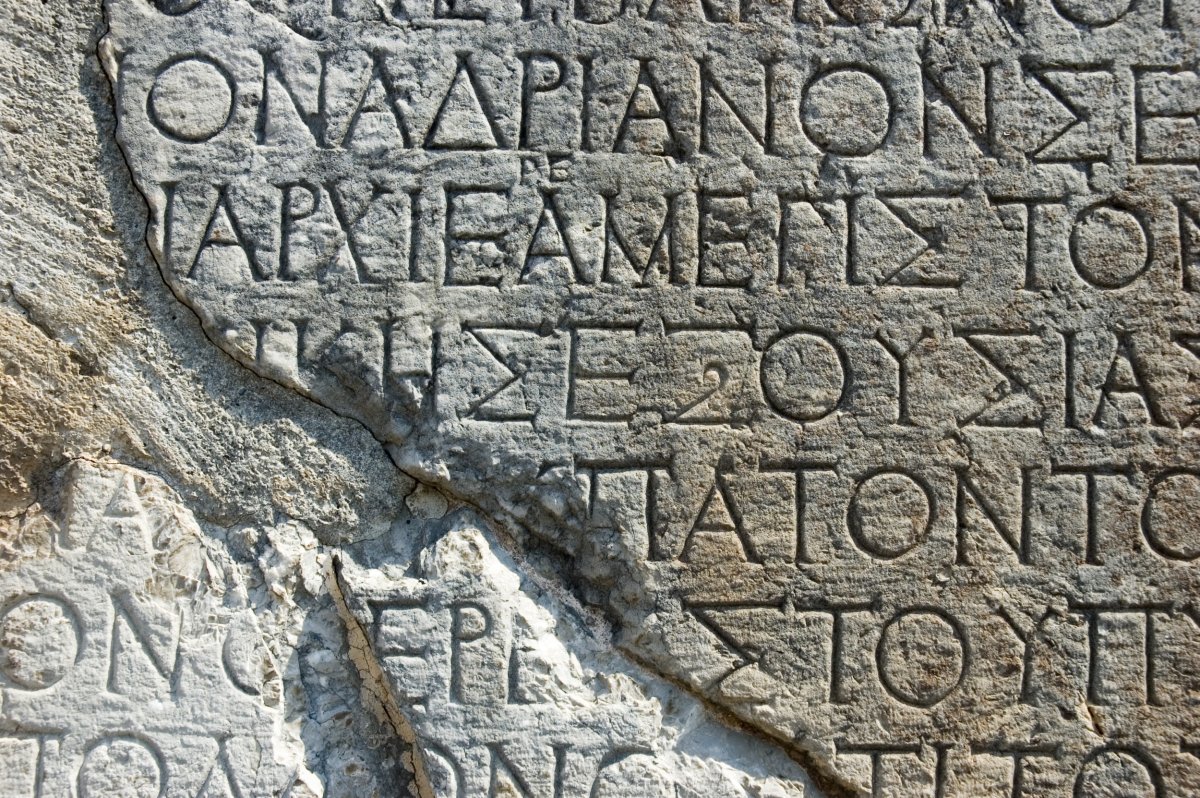Artificial intelligence is now better at deciphering damaged ancient Greek texts than humans, scientists have said. A team of researchers has created the "first ancient text restoration model," which they named Pythia, and found it could predict missing words with an error rate of around 30 percent, compared to 57 percent in human epigraphists.
The team of researchers, from the U.K.'s University of Oxford and DeepMind, developed Pythia—named for the ancient Greek priestess that served as the oracle of Delphi—to recover missing characters from a damaged text "using deep neural networks."
"Ancient history relies on disciplines such as epigraphy, the study of ancient inscribed texts, for evidence of the recorded past," they wrote. "However, these texts, 'inscriptions,' are often damaged over the centuries, and illegible parts of the text must be restored by specialists, known as epigraphists." Pythia, they say, can fill in the blanks more effectively than trained humans, potentially opening up the field of digital epigraphy and ancient text restoration.
"Its architecture is carefully designed to handle long-term context information, and deal efficiently with missing or corrupted character and word representations," the team wrote in a preprint study—meaning it has not yet been peer-reviewed by other scientists.
The researchers believe Pythia could be used as a collaborative tool, where the AI is used to narrow down the possible missing words—an extremely time-consuming text for humans—then an epigrapher takes over and decide the best fit.
According to New Scientist, the team taught Pythia to recognize patterns in 35,000 ancient Greek relics, which were between 1,500 and 2,600 years old. This included over three million words across various surfaces, including stone and ceramic. The AI could also pick up on the context of words, as well as the layout of the inscriptions.
In a test of the system, Pythia filled in the gaps of almost 3,000 damaged inscriptions. Compared to a human deciphering texts, the AI model made 27 percent fewer errors. It was able to complete the task in just a few seconds. The scholars took two hours to make an average of 50 restorations.
"The combination of machine learning and epigraphy has the potential to impact meaningfully the study of inscribed textual cultures, both ancient and modern," they conclude. "By open-sourcing Pythia, and [the] processing pipeline, we hope to aid future research and inspire further interdisciplinary work."
Philippa Steele, from the Faculty of Classics at the University of Cambridge, who was not involved in the study, told New Scientist that AI could assist in restoration projects. "It looks to me as though the highest success rates would be achieved when...we are just missing small parts of a long text, or when there are plenty of similar parallels for a newly discovered fragmentary text," she told the magazine.

Uncommon Knowledge
Newsweek is committed to challenging conventional wisdom and finding connections in the search for common ground.
Newsweek is committed to challenging conventional wisdom and finding connections in the search for common ground.
About the writer
Hannah Osborne is Nesweek's Science Editor, based in London, UK. Hannah joined Newsweek in 2017 from IBTimes UK. She is ... Read more
To read how Newsweek uses AI as a newsroom tool, Click here.








